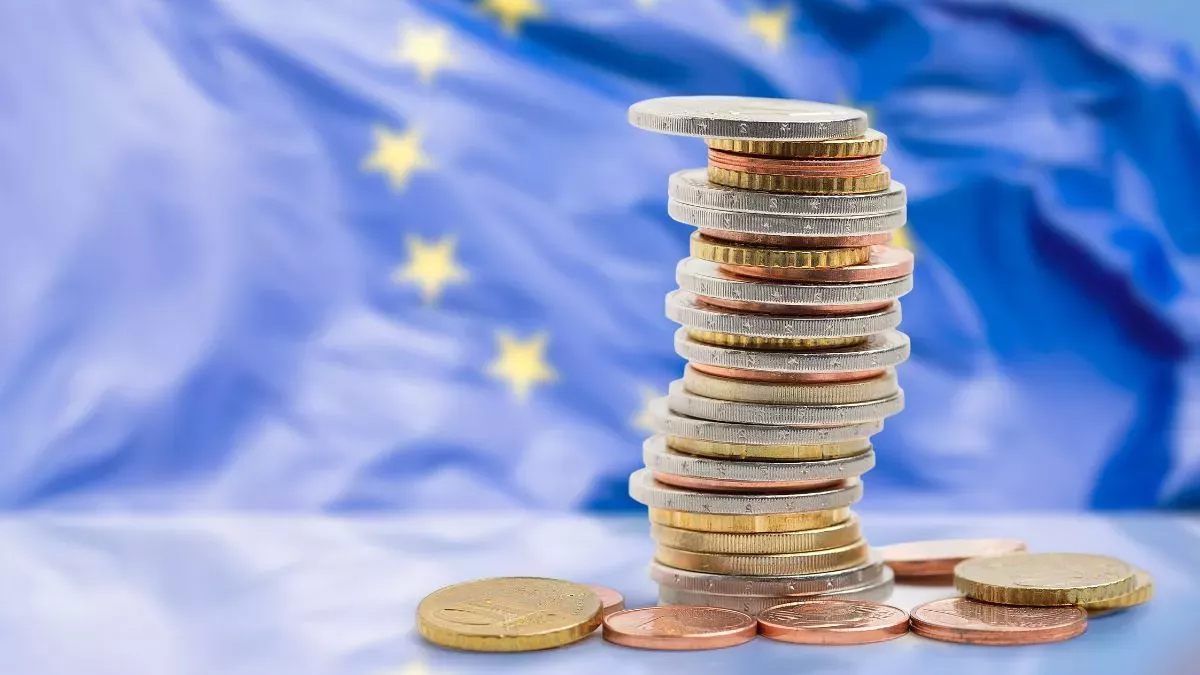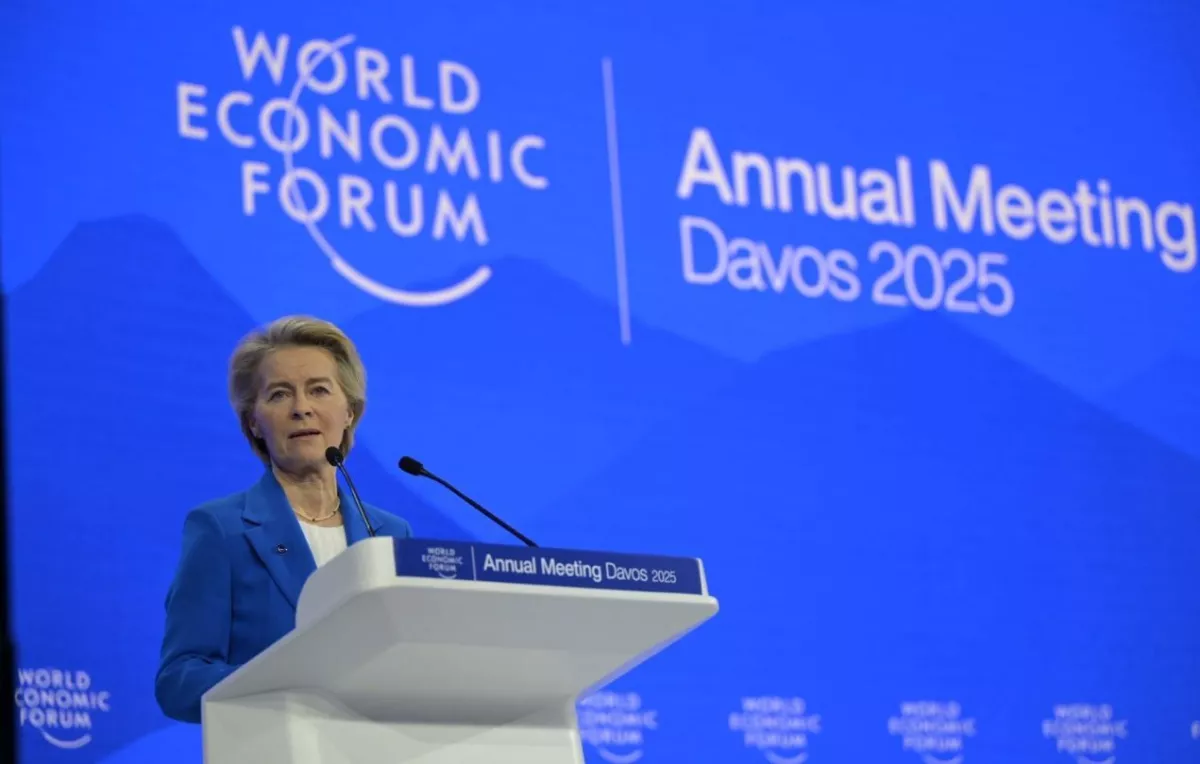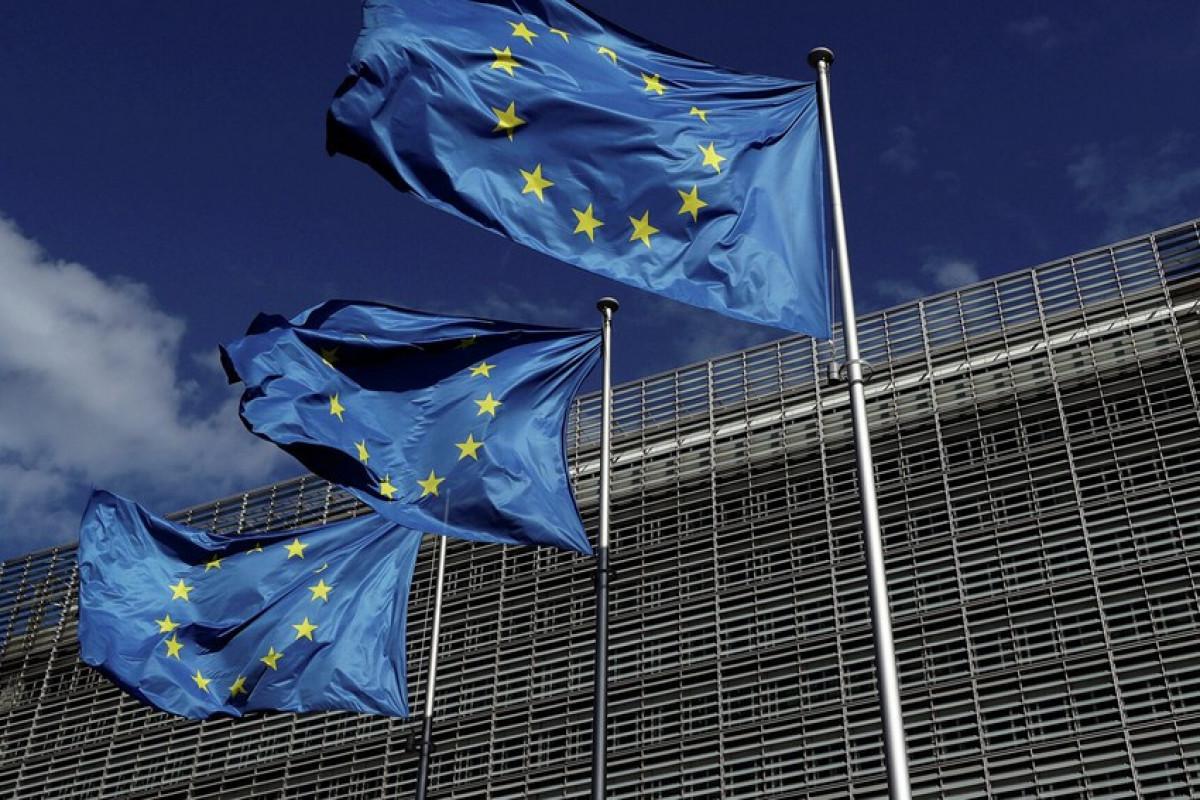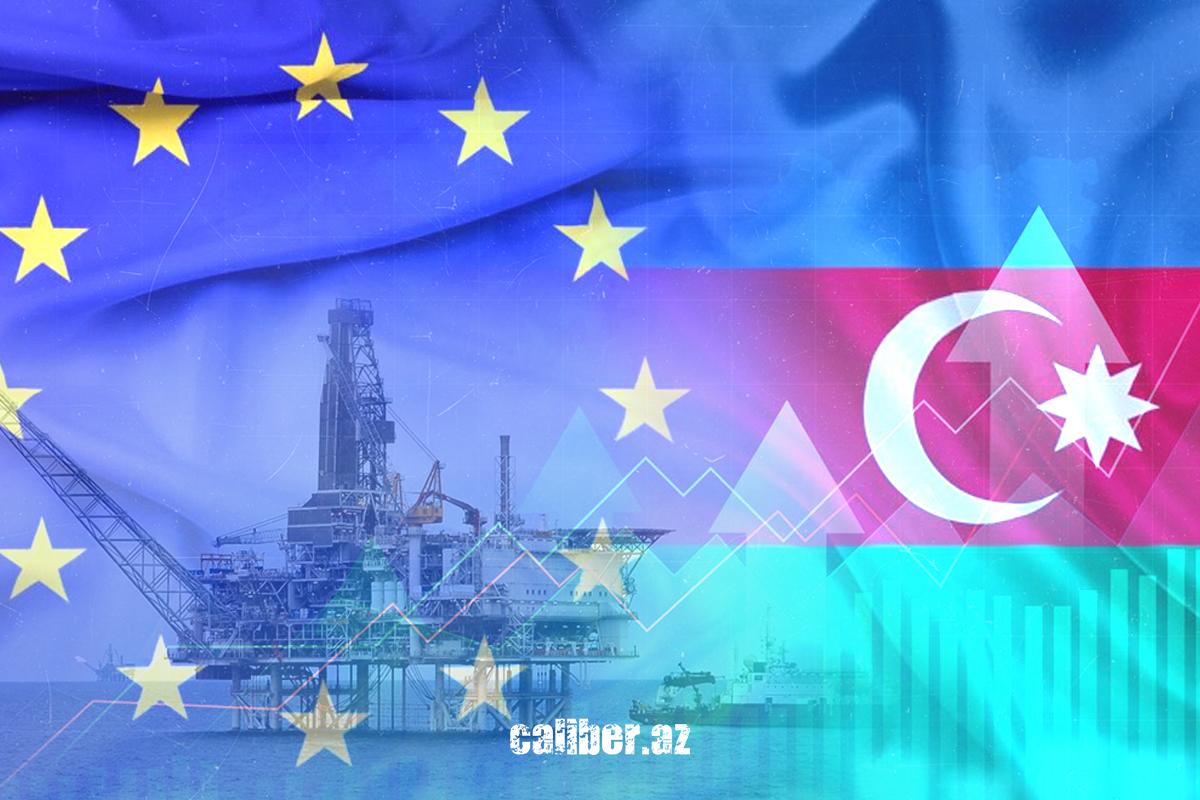Davos 2025: West's confusion and Azerbaijan's growing confidence Global power shift
The Davos Forum held last week was unprecedented in the contradictions tearing apart the Western elites. For decades, this event has been a symbol of the strengthening "collective West." This time, even European Commission President Ursula von der Leyen's speech was tinged with concern about the future of the EU, while the message sent to the forum's participants by U.S. President Trump undermined the ideological agenda of the European liberal establishment.
Sanctions take effect
On January 20, the annual World Economic Forum (WEF) convened in the Swiss resort town of Davos against the backdrop of the bleakest situation in Western countries in its history. Even the prepared Chief Economists Outlook, a survey of experts from global financial and economic institutions (including the World Bank, WTO, IMF), as well as banks and major corporations, is filled with gloomy expectations. Over the next three years, they predict the continued fragmentation of the global economy, particularly the intensification of the trade war between China and the U.S., as restrictions become a common feature of global trade.
The dire assessments of the experts are confirmed by relentless statistics. According to a recent UN report, World Economic Situation and Prospects, the global economy could grow by 2.8% in 2025 and 2.9% in 2026. So, it’s recovering, as liberal media cheer.
However, first, between 2010 and 2019, global economic growth averaged 3.2%. Second, even the projected 2.8% growth will be mainly driven by non-Western countries, while the situation in the West looks much worse. For example, according to forecasts, the EU's economic growth will be only 1.3%, and in 2026, just 1.5%! These UN calculations come as a cold shower for the leadership of Western countries, whose media report an impending improvement, citing the reduction of key interest rates by the central banks of the EU and the U.S. Federal Reserve.

The situation in the U.S. is slightly better than in the EU. In 2025, the U.S. economy could grow by 1.9%, and by 2.1% in 2026. This was facilitated by the policy of mass relocation of advanced manufacturing from the EU across the Atlantic, launched by U.S. President Joe Biden, a close ally of European liberals. Additionally, during Biden's presidency, the EU radically shifted its approach to energy procurement, leading to a redistribution of markets for other goods in favour of the U.S. In fact, Europeans began purchasing expensive energy resources from the Americans.
In other words, the figures, even those calculated by institutions at least somewhat sympathetic to the West, show that the balance of power in the global economy continues to shift towards non-Western countries. This is evident when we compare the growth rates of the global economy, the EU, and the U.S., as seen above.
This creeping catastrophe of the West is largely self-inflicted, the result of implementing a pseudo-liberal model. Driven by liberal dogma, Western countries in recent years have been tearing apart the fabric of the established global economic system, even though their global dominance was built upon it! As calculated by the authors of the aforementioned report for the Davos Forum, last year the G20 countries, which include the main Western powers, introduced over two thousand measures that restricted international trade, and only 634 decisions were made to promote its liberalisation. These sanctions were primarily imposed by Western countries. Yet, they are weakening as a result, and this is happening amidst the strengthening not just of the majority of non-Western countries, but key states that oppose the collective West.
Russia’s economy – due to the objective limitations on the export of capital and raw materials, which continued up until the very day of the invasion of Ukraine – is not collapsing, but rather developing. The real nightmare for the global hegemon is that China’s economy is also growing. The UN report also predicts that while global growth next year will be 2.8%, China’s economy will grow by 4.5%.
No chances for compromise
This objective material reality defined the overall atmosphere at the WEF in Davos. The discussions repeatedly centred around the fragmentation of the global economy and its consequences. While a year ago, speakers in Davos emphasized that fragmentation existed but that the West would adapt to it, now even the highest-ranking officials, who are expected to project confidence in the chosen course, have been expressing alarmist tones. A typical example was the speech of European Commission President Ursula von der Leyen, who called for not severing ties to avoid destroying the global economy. Of course, she was referring to relations with the U.S. and China—the imperative to sever ties with Russia remains in place. She stressed that the EU is focused on resolving trade conflicts with the largest economies—China and the U.S.—through negotiations. The Chinese government has declared a similar position.
However, there is virtually no chance for a compromise between the U.S., China, and the EU—because for the U.S., this is not just about current disagreements, but about the struggle for global hegemony. If the U.S. fails to limit China’s development, China will inevitably become a leader in all fields, largely due to its focus on gradual economic growth—what Beijing calls a "peaceful rise." As a result, Washington will continue its uncompromising stance, and the EU will have to come to terms with it. President Trump announced a multiple increase in U.S. tariffs on all Chinese imports (up to 60%), while Beijing, emphasizing its readiness to negotiate, is preparing a response to the restrictions introduced by Biden and announced by Trump. Recently, it became known that the Chinese authorities are considering anti-dumping measures against American chips. In these conditions, both the EU and China are preparing for further fragmentation and are planning to rely more on their internal sources of economic development.
The firm position of the new U.S. leadership was demonstrated at the Forum. President Trump addressed the participants of the event via video link on January 23. He once again made it clear that he had not forgiven the European liberal elites who openly campaigned against his re-election. To emphasize this, he specifically focused in his speech on criticizing key aspects of liberal ideology, including global environmental agreements, with the Paris Agreement being a central element. Trump did not give this issue undue attention for no reason—he was responding firmly to Ursula von der Leyen, who the day before had called the Paris Agreement on climate change "the best hope for all humanity" at Davos.
Ursula demands more power
However, it seems that European representatives no longer hope for concessions from Trump. According to von der Leyen, the European Union will grow using internal resources. This is a telling slogan that not only reflects the defeatist mood in Brussels regarding the possibility of defending EU interests in the battle for control over markets and raw material sources with the new leadership in Washington, but also shows that the "collective West" is becoming a fiction, transforming from a truly functioning alliance into a collection of countries and coalitions that are reluctantly following the U.S. At the same time, divisions are emerging even on crucial issues, such as NATO funding or policy toward China. The European establishment is generally bewildered by the sharp shifts in Washington’s policy—after all, both Biden and Trump have drastically changed course, signing batches of contradictory executive orders.
In these circumstances, the EU is beginning to look for ways to survive on its own. However, there are no new ideas in Brussels, and the economies of the leading countries in the bloc are heading toward disaster. Recently, it was revealed that the population and businesses in EU countries are intensively saving whatever they can, but there is no investment growth in technologically advanced sectors. In short, everyone feels like they are sitting on a powder keg and are saving for a "rainy day."

In this situation, the head of the European Commission dramatically discussed at the WEF how to mobilize internal resources. She suggests doing this by implementing a plan to boost investment within the EU. The extravagant title conceals mundane meanings— for example, the proposed new simplification of business operations represents another step toward the "third world" by eradicating the remnants of labour rights and freedoms, as well as standards of private entrepreneurship in "old Europe." The next point—supporting small and medium-sized enterprises—repeats the traditional priority in EU policy.
The most intriguing point is Ursula's third proposal: the unification of norms and regulations for innovative companies across the entire EU, and possibly the introduction of unified taxation. In other words, Ursula and her team intend to seize perhaps the most lucrative area of governance. Since her recent reappointment, they have been aggressively building a power vertical in the EU "under Ursula" by grabbing more and more authority. Now, under the new plan, they are trying to make a significant leap forward, as this unification, in plain terms, means transferring authority to Ursula and her allies in arguably the most profitable area. It’s no surprise they are rushing—the roadmap for introducing unified taxation is expected to be published by the European Commission in the coming days.
What adds even more spice to the situation is that the EU leadership has just managed to get a Belgian court to halt proceedings in what might be the largest corruption scandal in history involving coronavirus vaccine procurement, where the head of the European Commission was alleged to play a central role.
Time to negotiate with Baku
However, aside from her demand for more powers to revive the EU’s economy, Ursula von der Leyen also touched on another, quite pragmatic priority for Brussels in the coming years—restoring low and stable energy prices for the EU economy. In February, the European Commission will unveil a new plan to further diversify energy sources and boost investments in the energy sector.
You might assume this is about completing the "energy transition" and moving away from fossil fuels. Superficially, the EU appears to be making significant progress in this direction, “breaking free from Russian gas dependency.” On January 23,, the British think tank Ember published the latest data on electricity generation in the EU, showing that over five years, the share of fossil fuels in electricity generation dropped from 39% to 29%, while renewable energy’s share rose from 34% to 47% last year. In Germany, this figure even reached 54%.

But that’s just on the surface. In reality, such a hasty transition, especially amidst global confrontation and political stagnation, has already led to a series of severe systemic crises within the EU, affecting even the bloc’s two largest economies. France has changed four prime ministers in just one year due to a budgetary deadlock and a growing deficit, which are driving the country straight into a severe economic crisis. Germany, too, is struggling to make ends meet in its budget. For the first time in decades, its GDP has shrunk for the second consecutive period, and the German government, having reached record levels of unpopularity, was forced to hold early elections.
This is hardly surprising, as despite the latest technologies, the competitiveness of German products has plummeted catastrophically following the disappearance of cheap raw materials and the “energy transition.” Even Germany’s legendary chemical industry and mechanical engineering sector have collapsed. As a result, the European Commission now urgently needs sources of more traditional energy resources. It is no wonder that von der Leyen broke another taboo of European liberals at Davos by once again speaking of nuclear energy as something permissible.

However, this is only the beginning of the rejection of pseudo-liberal dogmatism. The next step should be abandoning biased attitudes toward potential partners capable of providing the EU with affordable energy resources and raw materials. Chief among these partners should be Azerbaijan, as it is the only viable route for the EU to access Caspian and Central Asian resources, as well as overland access to the wealthiest markets of Central Asia and adjacent regions.
To start, Brussels could cease its scheming with Armenian revanchists and withdraw its increasingly militarised mission from the South Caucasus.
Baku, meanwhile, has consistently highlighted its commitment to a pragmatic and balanced approach in its cooperation with the EU, despite provocations from certain factions within the bloc. Azerbaijan firmly asserts its readiness to engage with the EU as an equal partner and remains steadfast in this position, particularly as it builds on the strong foundations established by reversing the consequences of Armenia’s territorial expansion.
These foundations continue to strengthen as the South Caucasus undergoes a profound transformation, led by Azerbaijan, Türkiye, and Georgia, working together to restore the region’s historical cohesion. Time is on Baku’s side—leaving it to the West to act with urgency.








